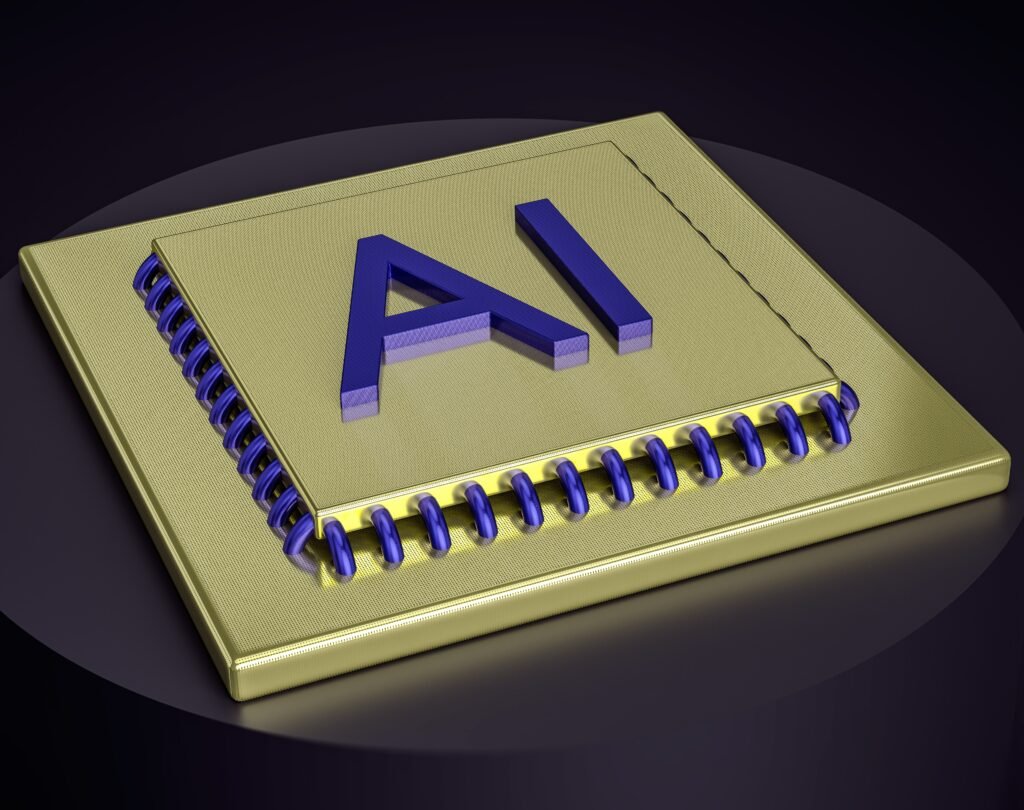Artificial Intelligence (AI), the remarkable technology that simulates human intelligence in machines, has undoubtedly revolutionized various aspects of our lives. From automated virtual assistants to autonomous vehicles, AI has become an integral part of everyday operations. However, amidst our fascination with this cutting-edge technology, have you ever wondered who exactly developed artificial intelligence and kickstarted this remarkable journey? In this article, we will unravel the remarkable minds behind the development of artificial intelligence, shedding light on their groundbreaking contributions and paving the path for the future of AI.
The Origins of Artificial Intelligence
The Concept of Artificial Intelligence
Artificial Intelligence, or AI, refers to the development of computer systems that can perform tasks that would typically require human intelligence. These tasks include problem-solving, learning, decision-making, and even speech recognition. The concept of AI dates back to ancient times, with the ancient Greeks and Egyptians attempting to create mechanical devices that imitated human behavior. However, it was not until the 20th century that AI as a field of study started to rapidly evolve.
The Early Pioneers of AI Research
In the 1950s and 1960s, a group of brilliant scientists and mathematicians laid the foundation for AI research. One of the most prominent figures during this period was Alan Turing. Turing, a British mathematician, is widely regarded as the father of modern computer science. His groundbreaking work on computability and the concept of a “universal machine” provided the theoretical framework for AI.
The Turing Test and the Birth of AI
Alan Turing and his Contributions
Alan Turing’s contributions to AI are immeasurable. His most famous contribution is the Turing Test, which he proposed in 1950 as a way to determine whether a machine can exhibit intelligent behavior equivalent to that of a human. The test involves a human interrogator engaging in a conversation with both a machine and a human, without knowing which is which. If the interrogator cannot consistently distinguish between the machine and the human, the machine is said to have passed the Turing Test and demonstrated artificial intelligence.
The Test and its Implications
The Turing Test sparked immense debate and discussion. It not only paved the way for AI research but also raised questions about the nature of consciousness and what it means to be human. The idea that machines could potentially possess intelligence and consciousness challenged traditional views and expanded our understanding of what is possible with technology.
The Dartmouth Conference and the AI Winter

The Birth of AI as a Field of Study
In the summer of 1956, the Dartmouth Conference brought together a group of researchers who shared a common interest in AI. This conference marked the official birth of AI as a recognized field of study. Participants discussed topics such as problem-solving, language processing, and the possibility of creating machines that can learn and improve themselves over time. The Dartmouth Conference set the stage for further advancements in AI research and inspired many future pioneers in the field.
The Rise and Fall of Early AI Ventures
After the Dartmouth Conference, AI research experienced significant growth and investment. Funding poured into various projects and optimism about AI’s potential reached its peak. However, the high expectations did not align with the technological limitations of the time, leading to a period known as the “AI Winter.” The AI Winter refers to a decline in funding and interest in AI research from the late 1970s to the mid-1980s. It was a challenging period for AI, but it also served as a valuable lesson for researchers to be more realistic about the capabilities and limitations of AI.
Machine Learning and Neural Networks
The Emergence of Machine Learning
Machine learning became a key focus within the field of AI in the early 1980s. Instead of relying solely on manual programming, machine learning algorithms allowed computer systems to learn from data and improve their performance over time. This development opened up new opportunities for AI applications in various fields, such as computer vision, natural language processing, and robotics. Researchers started exploring different machine learning techniques, including supervised learning, unsupervised learning, and reinforcement learning.
The Development of Neural Networks
Neural networks, inspired by the human brain’s structure and functionality, became a critical component of machine learning. Researchers began developing artificial neural networks, consisting of interconnected nodes called artificial neurons, to mimic the way the human brain processes information. These neural networks enabled machines to recognize patterns, make decisions, and even perform complex tasks such as image recognition and natural language understanding. The development of neural networks revolutionized AI research and opened up possibilities for more sophisticated AI systems.
Expert Systems and Symbolic AI

The Development of Expert Systems
In the 1970s and 1980s, the concept of expert systems gained prominence in the field of AI. Expert systems were computer programs designed to mimic the decision-making processes of human experts in specific domains. These systems captured expert knowledge in the form of rules and used logical reasoning to provide advice or solutions. Expert systems found applications in fields like medicine, finance, and engineering, assisting professionals in making informed decisions. Although expert systems had their limitations, they showcased the potential of AI technology in problem-solving and knowledge-based tasks.
Symbolic AI and the Knowledge-Based Approach
Symbolic AI, also known as classical AI, focuses on manipulating symbols and formal logic to represent and reason about knowledge. This approach involves building knowledge-based systems that use symbolic representation and rule-based reasoning to solve complex problems. Symbolic AI played a crucial role in the early development of AI and laid the foundation for future advancements in areas such as natural language processing and intelligent agent systems. While symbolic AI has its advantages, it also faces challenges when dealing with large-scale or ambiguous problems.
The Resurgence of AI in the 1980s
Advancements in Computing Power
One factor that contributed to the resurgence of AI in the 1980s was the significant advancements in computing power. Faster processors and increased memory capacities allowed researchers to tackle more complex AI problems and process larger datasets. The availability of high-performance computing resources accelerated progress in areas such as machine learning, neural networks, and natural language processing. Improved computing capabilities opened the door to more sophisticated AI algorithms and paved the way for future breakthroughs.
New Research Directions in AI
In addition to advancements in computing power, new research directions emerged in the 1980s that revitalized AI. Researchers began exploring areas such as intelligent agents, robotics, natural language understanding, and computer vision. These advancements expanded the scope of AI applications and brought AI closer to practical use in various industries. The interdisciplinary nature of AI research became evident, with inputs from fields such as cognitive science, linguistics, and psychology. The 1980s marked an exciting era of innovation and progress in AI.
The Modern Era: Deep Learning and Big Data

The Rise of Deep Learning
Deep learning, a subfield of machine learning, experienced significant advancements in the early 21st century. Deep learning algorithms, inspired by neural networks, introduced the concept of deep neural networks with multiple layers of artificial neurons. This architecture enabled the automatic extraction of features from raw data, leading to breakthroughs in areas such as image and speech recognition. Deep learning models trained on massive datasets surpassed human-level performance in certain tasks, sparking tremendous interest and investment in the field of AI.
The Influence of Big Data
The exponential growth in data collection and storage, often referred to as big data, played a crucial role in fueling the progress of AI. The availability of vast amounts of data allowed researchers to train AI models more effectively, improving their accuracy and performance. Big data also enabled the development of predictive analytics and recommendation systems, transforming industries such as e-commerce and personalized marketing. The synergy between AI and big data continues to drive innovations and shape the modern era of AI.
Individual Contributors to AI Development
Geoffrey Hinton and Deep Learning
Geoffrey Hinton, a Canadian computer scientist, is widely recognized for his pioneering work in deep learning. Hinton’s research on neural networks and backpropagation algorithms in the 1980s laid the foundation for the resurgence of neural networks in the 21st century. His contributions, including the development of convolutional neural networks (CNNs) and generative adversarial networks (GANs), have significantly advanced the field of AI and revolutionized areas such as computer vision and natural language processing.
Yann LeCun and Convolutional Neural Networks
Another influential figure in AI development is Yann LeCun, a French-American computer scientist. LeCun is known for his groundbreaking work on convolutional neural networks (CNNs), a type of deep learning model specifically designed for image recognition. His contributions to CNNs and their applications in areas like object recognition and autonomous vehicles have reshaped the field of AI and paved the way for advancements in computer vision and pattern recognition.
Andrew Ng and the Advancement of AI
Andrew Ng, a computer scientist and entrepreneur, has played a significant role in AI development through his research and industry contributions. Ng co-founded Google Brain and was instrumental in the development and popularization of deep learning. His online courses, such as “Machine Learning” and “Deep Learning Specialization,” have educated and inspired countless individuals worldwide, democratizing AI education and fostering innovation. Ng’s efforts continue to help accelerate the advancement of AI technologies and their applications in various domains.
AI Developments by Organizations
IBM and Watson
IBM’s Watson, a highly advanced AI system, gained global recognition when it won the Jeopardy! game show in 2011. Powered by deep learning algorithms and natural language processing, Watson demonstrated the ability to understand and answer complex questions posed in natural language. Beyond the game show, IBM has leveraged Watson in fields such as healthcare, finance, and customer service, showcasing the potential of AI in solving real-world problems and enhancing human decision-making.
Google and DeepMind
Google’s acquisition of DeepMind in 2014 marked a significant milestone in AI development. DeepMind, a British AI company, had gained attention for its achievements in reinforcement learning and developing AI systems capable of mastering complex games. Google’s continued investment in AI, combined with DeepMind’s expertise, has led to impressive breakthroughs in diverse domains, including healthcare, robotics, and autonomous vehicles. Google’s AI initiatives demonstrate the power of large-scale research and industry collaboration in advancing AI technologies.
OpenAI and Innovation
OpenAI, a nonprofit AI research organization, aims to ensure that artificial general intelligence (AGI) benefits all of humanity. Founded by Elon Musk, Sam Altman, and others, OpenAI focuses on conducting cutting-edge research and developing AI technologies with a strong emphasis on ethics and safety. By fostering openness, collaboration, and responsible AI development, OpenAI strives to mitigate potential risks associated with AGI while pushing the boundaries of AI innovation. Their work serves as a valuable contribution to the global AI community.
AI Development Around the World
USA: The Hub of AI Research
The United States has long been at the forefront of AI research and development. Leading academic institutions such as Stanford, MIT, and Carnegie Mellon University have produced numerous AI pioneers and have been instrumental in shaping the field. Additionally, the presence of tech giants like Google, Microsoft, and IBM, combined with government support and investment, has fostered a thriving AI ecosystem in the United States. The country’s AI research contributions and industry innovations continue to drive progress and set the pace for global AI development.
China: Rapid Advancements in AI Technology
In recent years, China has emerged as a global powerhouse in AI research and technology. The Chinese government has recognized AI as a strategic priority and has made significant investments in AI research funding and infrastructure. Chinese companies such as Baidu, Alibaba, and Tencent are leading the way in AI advancements, particularly in areas like facial recognition, natural language processing, and autonomous vehicles. China’s commitment to AI development and its vast market potential make it a key player in shaping the future of AI.
Europe’s Approach to AI Research
Europe has also made notable contributions to AI research and has a unique approach to its development. European countries, including the United Kingdom, Germany, and France, have established themselves as AI hubs, with leading universities and research institutions driving innovation. The European Union has placed a strong emphasis on ethical AI and data privacy, shaping policies and regulations to ensure responsible AI development. Europe’s collaborative nature, commitment to ethics, and diverse perspectives contribute to its distinct position in the global AI landscape.
In conclusion, the origins of artificial intelligence stretch back centuries, but it wasn’t until the 20th century that AI as a field of study truly took off. The concepts, theories, and contributions of visionaries like Alan Turing laid the foundation for AI research and ignited a chain of groundbreaking developments. From the Dartmouth Conference to the rise and fall of AI ventures, the perseverance of researchers and advancements in computing power propelled AI into new frontiers. Machine learning, expert systems, and neural networks revolutionized AI, leading to the resurgence of the field. The modern era brought forth deep learning, fueled by big data, unleashing the power of AI like never before. Individual contributors like Geoffrey Hinton, Yann LeCun, and Andrew Ng drove advancements in AI, while organizations like IBM, Google, and OpenAI pushed boundaries and sparked innovation. The global landscape of AI development showcased the leadership of the United States, the rapid advancements in China, and the unique approach of Europe. With each chapter of AI’s evolution, the possibilities and potential of this groundbreaking field continue to expand, promising a future where AI becomes an integral part of our daily lives and transforms industries across the globe.





